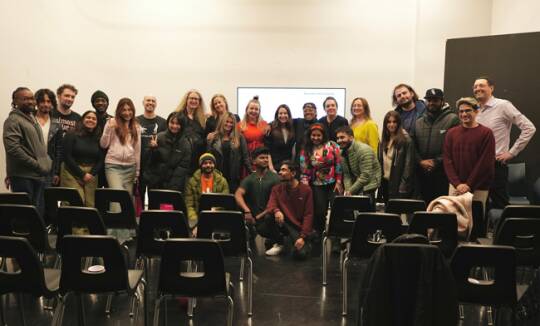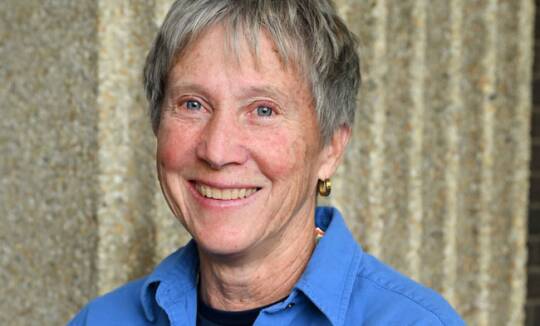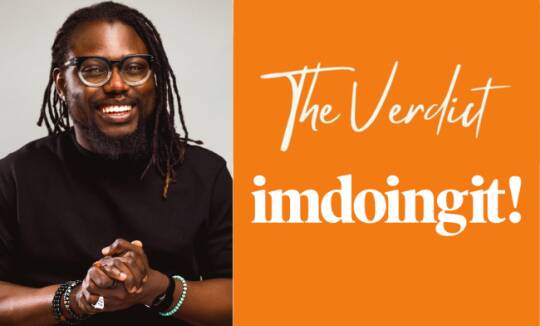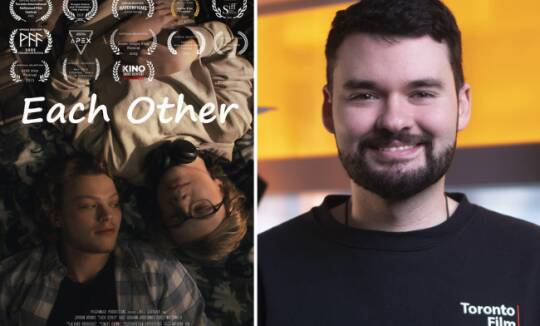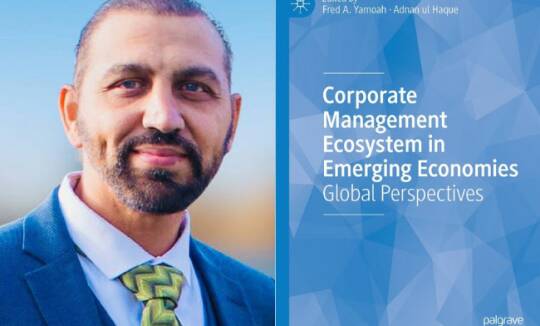Attention aspiring potrepreneurs: Yorkville University is now offering a ‘special topics’ course with a Cannabis in Canada component.
Contemporary Issues in Business: A Case Approach was first introduced to Yorkville’s Bachelor of Business Administration curriculum in January 2019 – less than three months after cannabis was legalized in Canada on Oct. 17, 2018 – and has since been taught in two terms, with an upcoming third set to commence in mid-August.

Jana Comeau, Yorkville’s Dean of Business, said cannabis was chosen as one of five subjects to be explored in the new course offering due to its emergence as a “trending” business topic about which there’s not yet a broad expanse of literature or research available.
“Cannabis is certainly very topical,” she said, “but it’s also a really good way to talk to students about the fact that there’s always going to be new opportunities in the marketplace – opportunities you can either seize or wait for the next wave.”
To those ends, Comeau said the Cannabis in Canada module takes a two-pronged approach to its subject matter by exploring both the different facets of the emerging industry and the business opportunities it presents, as well as the far-reaching implications recent cannabis legislation has had on Canadian businesses across all sectors.
“As we started having conversations with thought-leaders in this area, it became very clear that there are two sides that companies have to consider,” she said.
“First, of course, is how businesses are trying to figure out how they can take advantage of this emerging new industry. But we also look at how companies are struggling with what the actual legislation means for them from a managerial perspective and from a human resources capacity to protect their employees, to protect their customers.”
Cannabis in Canada is just one of five modules the Contemporary Issues in Business course currently tackles over its six-week duration. Other topics broached include: the changing face of retail; the nationalism vs. globalism debate; cybersecurity; and the impact of social media on the business landscape.
Comeau said each of the five modules currently contained in the course, which takes a case-analysis approach to learning, was developed with extensive input from experts in each respective field.
To help develop the Cannabis in Canada module, Comeau commissioned Dr. Shelley Rinehart – a University of New Brunswick marketing professor and the Director of Graduate Studies for UNB’s MBA program.
“She developed the cannabis module for us because she’s doing a lot of work through UNB, and has developed a whole course on the Business of Cannabis for her students there,” Comeau said of Rinehart, who’s based out of Saint John.
“There’s quite an industry emerging in Saint John – not just the buying and the selling of cannabis, but the peripheral industries, too…and she’s had her finger on the pulse of that industry for years.”
Rinehart said her own interest in the cannabis industry was first piqued through her chairship of RPC Science & Engineering – a provincial research organization recognized last year as the Top Testing Lab in the country by the Canadian Cannabis Awards – and has only grown since.
“Jana knew I was doing some work with cannabis, because I had talked to her about some of the research proposals that we were putting forward in that area,” she said, noting she jumped at the chance to help develop Yorkville’s cannabis module.
“It’s important to have classes like this right now, because it’s new and there are huge job opportunities for students in the cannabis sector – from strategists, to marketers, to HR people – because these companies are growing really fast and hiring people,” Rinehart added.
“In order to have the edge up to get those jobs, you’ve got to have an understanding of the industry. Even in an unrelated job, having an understanding of cannabis when you apply, especially for an HR job, is huge.”
Going into the module’s development, Rinehart said she ensured she covered everything from the history of cannabis (including its suspected inclusion in the Bible as an ingredient in a ‘holy anointing oil’), to its regulation, to the business opportunities it presents, to some of the ‘unintended consequences’ its legalization has brought about.
“The implications for the workplace are huge,” Rinehart said, listing RCMP officers as a ‘great example’ of those whose jobs have been seriously impacted by cannabis legalization.
“Under current rules, RCMP officers have to be 28 days cannabis-free before they can report for duty, but they’re also not allowed to refuse a call. So, what happens when they’re exposed to second-hand smoke while on the job? Do they have to stay home from work? And if they do, who pays for that?”
All that said, Rinehart said she believes the shelf-life for courses focusing in on the cannabis industry will be a relatively short one.
“What makes it unique right now is that you’re dealing with a business that was illegal and now it’s been made legal – that’s what makes it different from other products at the moment,” she said. “But in three to five years, it will be absorbed into the normal discussion of business like everything else.”
In the meantime, Comeau said both she and her students are quite enjoying their exploration of cannabis as an emerging business subject.
“I love it, because I love the conversations we have about it…Students really enjoy the content, too, because it’s all stuff they’re hearing about in the news. The readings are all really current and topical, and it just pushes them into thinking about things that are relevant,” she said.
“The course overall also provides a good backdrop for them to be able to learn about the variety of issues that simultaneously require the attention of business owners and managers, regardless of the industry. The world is such an intricate web, that it is important for students to learn the impact of these intricacies as they develop their managerial and business decision-making skills.”

